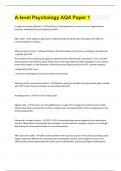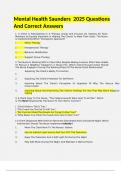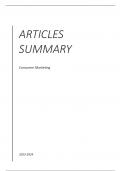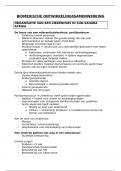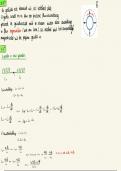Exam (elaborations)
A-level Psychology AQA Paper 1 with questions and answers.
- Course
- Institution
5 stages of minority influence - Consistency, Draw attention to a cause or issue, Augmentation Principle, Snowball Effect and Cognitive Conflict ABC model - A cognitive approach to understanding mental disorder, focusing on the effect of irrational beliefs on emotion. Abnormal brain circuits - ...
[Show more]
